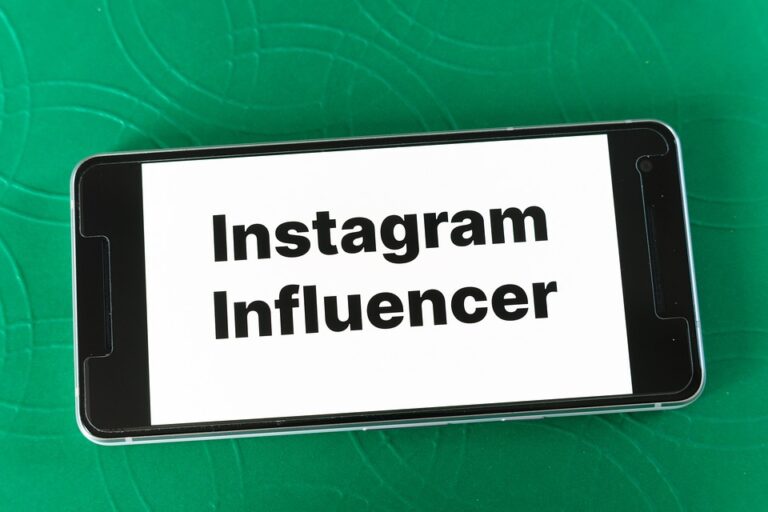The Impact of AI on Influencers: Tools and Technologies Shaping the Future
In today’s digital landscape, the role of influencers is evolving more rapidly than ever due to the adoption of artificial intelligence (AI). This seismic shift is not merely a trend; rather, it’s an integral part of the influencer marketing strategy that brands and creators must navigate. The intersection of influencer updates and advanced technologies is creating unprecedented opportunities and challenges for content creators. In this article, we will explore the various tools and technologies influenced by AI, their implications for influencers, and the future dynamics of this sector.
Understanding the Role of AI in Influencer Marketing
The Rise of AI Tools for Creators
AI technology has streamlined various aspects of influencer marketing, enabling creators to focus on content creation rather than analytics and outreach. Current tools allow influencers to gain insights into engagement metrics, track audience sentiment, and even generate content ideas based on trending topics.
-
Content Creation: AI-powered writing assistants, such as OpenAI’s GPT-3, enable influencers to brainstorm post ideas, craft captions, and even draft entire blog posts, saving time and enhancing creativity.
- Audience Analytics: Tools like Hootsuite Insights leverage AI to analyze social media data, helping influencers understand their followers better. This kind of audience segmentation is valuable for optimizing content strategies.
Influencer Updates: Statistics That Matter
Recent statistics underscore the impact of AI on influencer marketing:
- According to a report by Influencer Marketing Hub, 63% of marketers believe that AI will improve their ability to identify the right influencers.
- A study by eMarketer found that brands utilizing AI in their influencer campaigns saw a 30% increase in engagement rates compared to those relying on traditional analytics.
Understanding these trends illuminates the potential benefits of adopting AI tools within influencer marketing strategies.
How AI Enhances Authenticity and Engagement
Authenticity in Content Creation
The quest for authenticity is paramount in the world of influencer marketing. AI technologies can analyze effective messages that resonate with specific demographics, helping creators maintain their authentic voice while also driving engagement.
-
Sentiment Analysis: Tools like Sprout Social apply AI to assess audience reactions to content. By gauging emotional responses, influencers can refine their messaging to align better with their audience’s sentiments.
- Enhanced Engagement: Chatbots powered by AI can facilitate real-time interactions between influencers and their followers. This approach not only bolsters engagement but also fosters a sense of community around the influencer’s brand.
Example: The AI-Driven Influencer
Consider the case of an established beauty influencer, Sarah. As she started incorporating AI tools into her strategy, she noticed a significant uptick in engagement. Utilizing AI sentiment analysis, Sarah adjusted her content to emphasize eco-friendly beauty products, resonating with her followers’ values. This shift led to a 25% increase in her follower count in just three months, illustrating the practical impact of AI on influencers.
Challenges of Integrating AI in Influencer Marketing
While AI offers considerable advantages, it also presents some challenges for influencers and brands alike:
-
Data Privacy Concerns: The use of AI in data analysis raises important questions regarding data privacy. Influencers must navigate the complexities of user consent and data protection laws.
- Over-Reliance on Algorithms: As influencers become more reliant on AI, there’s a risk of homogenizing content. Maintaining a unique, personal touch is crucial to retain audience engagement.
The Future Landscape of Influencer Marketing
The integration of AI into influencer marketing is not a fleeting change; it’s a harbinger of a future that’s here to stay. As technology continues to advance, the tools available to influencers will become even more sophisticated.
Potential Trends to Watch
- Virtual Influencers: AI is paving the way for the emergence of virtual influencers—computer-generated characters who can engage with audiences just like human influencers.
- Hyper-Personalization: Future AI tools will likely advance the personalization of marketing messages, making them more relevant to individual users.
Conclusion
The impact of AI on influencers is profound and multifaceted, ushering in a new era of influencer marketing that emphasizes efficiency, authenticity, and engagement. As influencers adopt AI tools, they can not only streamline their operations but also strengthen connections with their audiences. Taking care to balance the advantages of AI with the importance of personal voice will be key to future success in this ever-evolving landscape.
For more insights and influencer updates, check out our articles on The Future of Social Media Marketing and Current Trends in Digital Advertising. Additionally, explore eMarketer’s latest findings for more comprehensive data on influencer marketing trends.
Images Suggestion:
- Image of influencers using AI tools (Alt text: Influencers utilizing AI tools in their marketing strategy).
- Infographic on AI impact in influencer marketing (Alt text: Statistics showcasing AI’s role in influencer updates).
By staying abreast of these developments, influencers can harness the power of AI to create meaningful connections and drive successful campaigns into the future.


